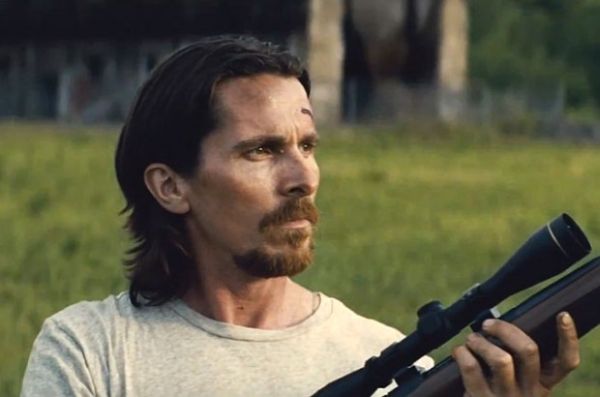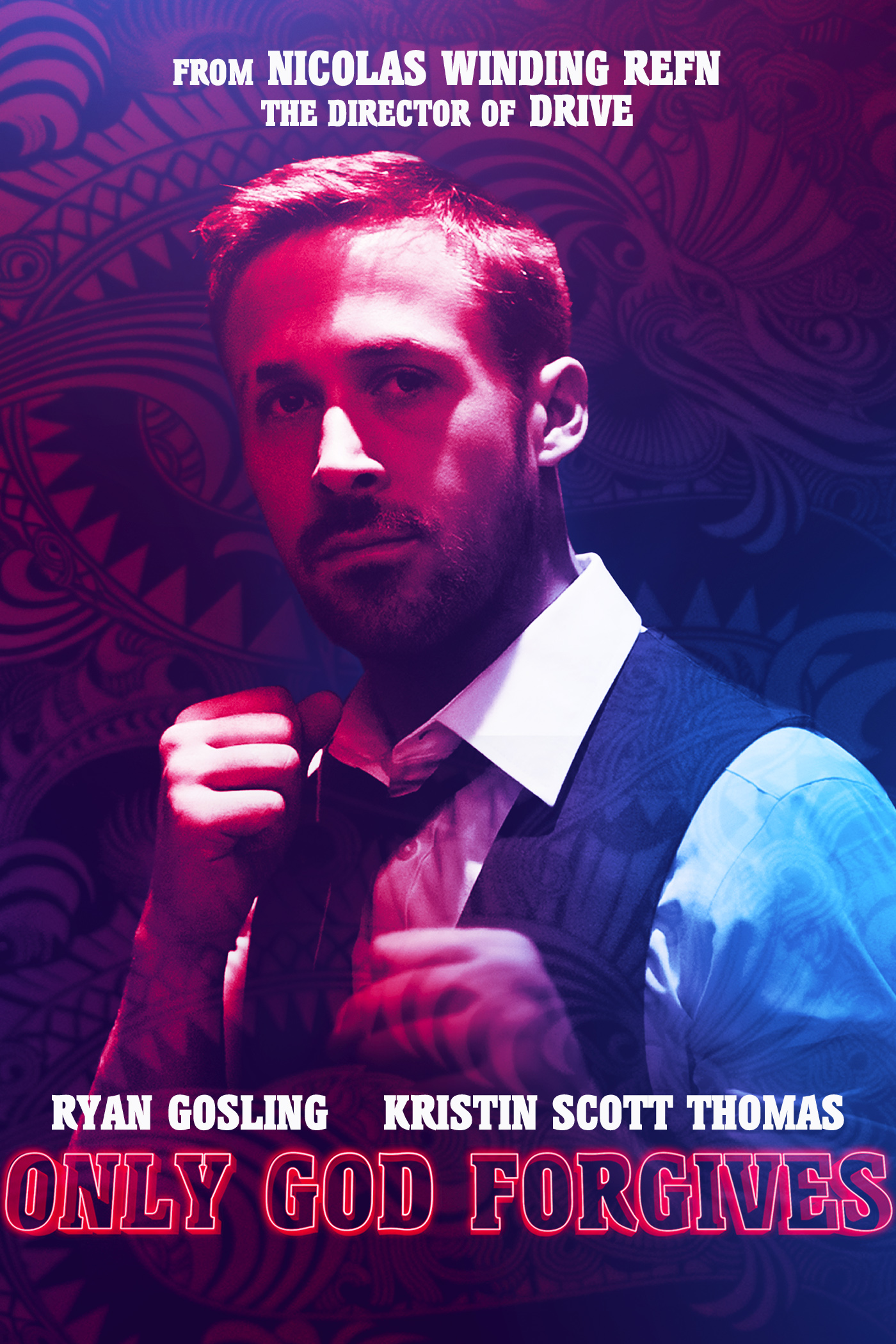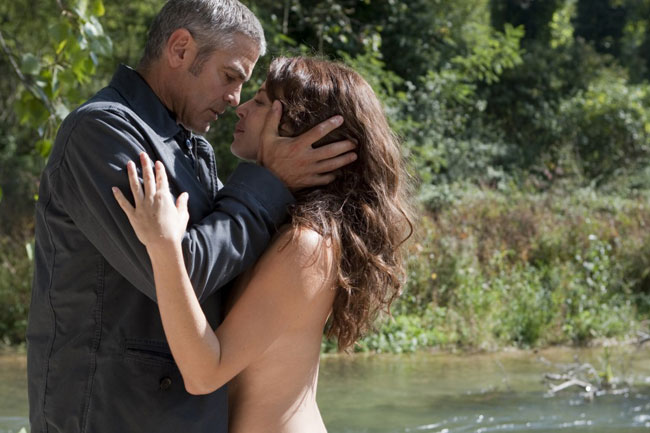2013 - 115 minutes - Dramedy
Director: Alexander Payne
Country: United States
IMDB: 8.1
 Metacritic: 86
Metacritic: 86RT: 91
CinemaChagrin's Rating: A
Watch this movie if you enjoy:
- Gorgeous B&W cinematography
- Bruce Dern
- Quirky family relationships
- Road trip movies
Avoid this movie if you dislike:
- Slow-paced films
- Profane/crude language
- Potentially offensive caricatures of Midwesterners
I entered the theater looking forward to seeing Nebraska because of its intriguing premise and excellent critical reception. I enjoyed director Alexander Payne's previous film, The Descendants (reviewed on this blog by my colleague EE), but was not blown away; however, Nebraska completely exceeded all of my expectations. It is now by far my favorite film of the year (and I've seen many excellent films, including Gravity, 12 Years A Slave, and American Hustle), an incredibly poignant and touching glimpse of familial and social decay in rural America.
 |
| Woody (Dern) and David (Forte) on the road |
The plot of Nebraska is relatively simple: 77-year old Woody Grant (an astoundingly moving Bruce Dern) receives a gimmicky marketing promotion in the mail proclaiming that he has won $1 million. After Woody attempts to walk all the way to Lincoln, Nebraska from his home in Billings, Montana several times, his exasperated son David (Will Forte) agrees to drive him there, allowing his aging father a chance to indulge in his fantasy. Thus the stage is set for a road trip that introduces the audience to all the members of Woody's dysfunctional family while showcasing social and economic decay across a bleak Midwestern landscape.
Before I discuss the top-notch writing and acting of Nebraska (which comprise the backbone of the film's story), I'll begin by stating that the film's visual composition and cinematography perfectly suit the events occurring onscreen. Director Alexander Payne's decision to shoot in black and white is a masterful one. Characters and locations appear in various shades of dull grey, emphasizing the aging nature of the small Midwestern town of Hawthorne, Nebraska in which most of the film takes place as well as those who inhabit it. Long, expansive shots of the empty countryside and the dilapidated hamlets that dot it further reinforce the feeling that this region of the country is long past its prime, just like the protagonist, Woody.
 |
| Woody upon seeing the old family homestead |
The excellent and understated script by screenwriter Bob Nelson allows the performances of the actors to come across as quite genuine. Equal parts laugh-out-loud hilarious and deeply sorrowful, the script never becomes preachy or sappy. I was genuinely moved by the story and the relationships between the characters. Some have criticized the film's portrayal of many characters as offensive, claiming that it perpetuates stereotypes about rural Midwesterners. I see where they are coming from, as a few characters (depicted as complete idiots) seemed a bit over-the-top. However, none of this ever truly bothered me, as such educational and vocational deficiencies are widespread in rural America. Additionally, both the director and screenwriter hail from that region of the country (Payne was born in Nebraska, Nelson in South Dakota).
 |
| David once again attempts to convince Woody not to walk to Nebraska |
 |
| Woody and his wife Kate (June Squibb) share a rare moment |
"I never knew the son of a bitch even wanted to be a millionaire! He should have thought about that years ago and worked for it!"
"I ain't fiddlin' with no cow titties. I'm a city girl!"
[looking at graves] "There's Woody's little sister, Rose. She was only nineteen when she was killed in a car wreck near Wausa. What a whore!"
Squibb steals every scene she's in and gives an absolutely delightful performance. She's been nominated for the Best Supporting Actress Golden Globe - I really hope she gets an Oscar nod as well.
 |
| Kate (Squibb) tells off members of the Grant clan |
Alexander Payne's new film expertly balances humor and sorrow, featuring some of the best performances of the year, a top-notch script, and gorgeous cinematography. Accompanying all of this is a somber soundtrack by Mark Orton that perfectly mirrors the mournful nature of the film. Nebraska definitely isn't for everyone - it moves along a relatively slow pace (just like the protagonist, Woody) and is a bit over-the-top at times - but if you enjoy compelling dramas that offer a sincere look into the lives of ordinary people, you'll love it. My favorite film of the year thus far, and highly recommended.
-CC
As of December 26th, 2013, Nebraska is still in theaters. Check out the trailer:




























